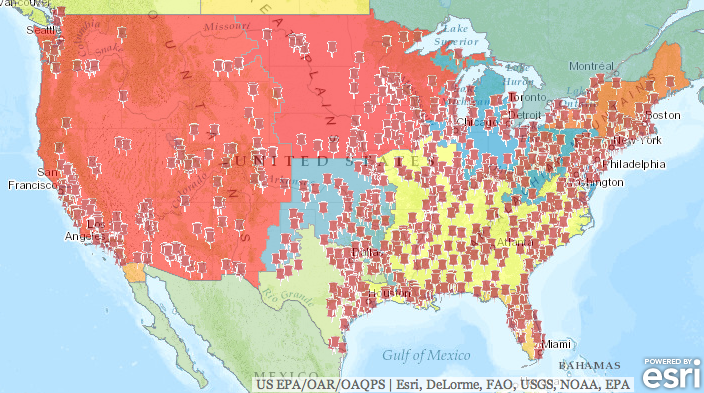There's been a lot of debate on the new Clean Power Plan proposed by the EPA last week. The plan outlines carbon reduction goals for each state that would cut carbon pollution by 30% by 2030, as compared to 2005 levels. Each state will come up with a plan to cut carbon emissions using the following mix of steps:
1. Improving efficiency at existing coal-fired power plants
2. Increasing utilization of existing natural gas fired power plants
3. Expanding the use of wind, solar, or other low- or zero-carbon emitting alternatives
4. Increasing energy efficiency in homes and businesses.
...including the projected amounts of generation achievable by completing all nuclear units currently under construction, avoiding retirement of about six percent of existing nuclear capacity…
Policies that encourage development of renewable energy capacity and discourage premature retirement of nuclear capacity could be useful elements of CO2 reduction strategies and are consistent with current industry behavior.
This is great and all, but what will the policies to discourage premature retirement and encourage new construction of nuclear power plants look like? Does this mean subsidies for nuclear energy or maybe a reduction in the red tape associated with regulation? We have the technology to build new nuclear power plants and to keep existing plants running, but how do we address the economic and political issues?
By the way, as with any government rule-making, you can voice your thoughts at a public hearing or comment on the proposal online.


 RSS Feed
RSS Feed

